Garcia Lab
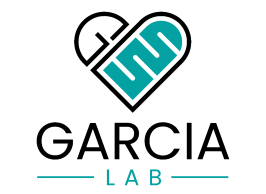
We are a basic and translational science research lab in cardiology at the University of Colorado - Anschutz Medical Campus with expertise in heart failure, cardiac metabolism, cardio immunology, and immunometabolism.
Our primary research focuses on pediatric cardiovascular and congenital heart disease with particular emphasis on investigations of the molecular mechanisms underlying the remodeling of cardiac and immune cell metabolism, identification of novel therapeutic targets, and biomarker assessment. The ultimate goal of this research is to develop the critical knowledge base and infrastructure necessary to identify efficacious therapies for improving outcomes in patients with heart disease. The lab utilizes several unique tools to address the mechanisms of cardiac dysfunction including whole animal and cell culture-based models, as well as a meticulously preserved Heart Tissue and Blood BioBank.
Due to our expertise in mitochondrial bioenergetics and ownership of two state-of-the-art Seahorse Bioanalyzers to assess metabolic function, we collaborate with a variety of labs to assess various parameters of metabolism in several different physiologic and pathologic processes, including projects to (1) understand metabolic remodeling in the context of T cell and macrophage activation, (2) identify alterations of mitochondrial metabolism in response to ischemia-reperfusion injury following a solid organ transplant, (3) screen novel mitochondrial targeted therapies, (4) to assess the feasibility of mitochondrial “transplant” to modulate metabolism in neuronal cells, (5) to understand brain capillary endothelial cell energetics in dementia, and (6) to assess mitochondrial – sarcomeric bidirectional crosstalk in aging.
If you are interested in learning more please check out our full website at GarciaLaboratory.com

Anastacia Garcia
Assistant Professor
Department of Pediatrics, Cardiology
What inspired you to pursue a career in research?
From my first elementary science fair project on stalagmites and stalactites to dissecting a fetal pig in AP Biology, the first time I learned about tardigrades and planaria when I watched mitosis in real time, saw skin cells migrate in a dish, to when I first saw a beating cardiomyocyte, I can't count the number of times I have fallen in love with science. After working as a research and development intern at a pharmaceutical company during my undergrad, my mentors encouraged me to pursue a PhD and the rest is history!
In 3 sentences or less, and without using any scientific jargon, explain your research.
Congenital heart disease is the most common birth defect and the leading cause of infant death in the United States. However, exactly how complex congenital heart disease ultimately progresses to complete heart failure is not well understood, which limits our ability to develop effective therapies. The ultimate goal of my research is to develop the knowledge base related to the progression of heart failure so that we can identify effective therapies for improving outcomes in this vulnerable group of patients.
What's the most rewarding and challenging part of your work?
I think for me mentoring is both the most rewarding but also the most challenging part of my work. I love teaching and mentoring trainees, but I recognize that each trainee possesses unique character traits and learning preferences that require appropriate tailoring. My intention is to maintain a lab that is a productive group of team players who each have individual projects with goals that contribute to the overall research program.
What do you like to do outside of research?
I love downhill mountain biking, skiing, and hanging out with my two 15-year-old dogs, Maddie and Zoe! I also love to read, and cook, and my guilty pleasures are shopping and celebrity gossip!
- Glycosphingolipid-Mediated Cardiomyocyte and Immune Cell Dysfunction in Hypoplastic Left Heart Syndrome
NIH-NHLBI R01; PI: Dr. Anastacia Garcia
- Consequences of Impaired T Cell Homeostasis in Single Ventricle Congenital Heart Disease
Additional Ventures – American Heart Association Collaborative Sciences Award; PIs: Drs. Stephanie Nakano, Anastacia Garcia, Julie Lang, and Jordan Abbott
- Brain capillary endothelial cell energetics and neurovascular uncoupling in dementia
NIH-NINDS MPI RF1; PIs: Drs. Fabrice Dabertrand and Anastacia Garcia
-
Defining cardiac mitochondrial and sarcomeric responses to estradiol replacement in aged females
Ludeman Family Center for Women’s Health Research Interdisciplinary seed grant; PIs: Kathleen Woulfe and Anastacia Garcia
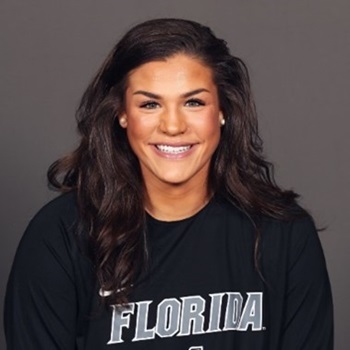 | Ashley Pietra, BS Medical Student |
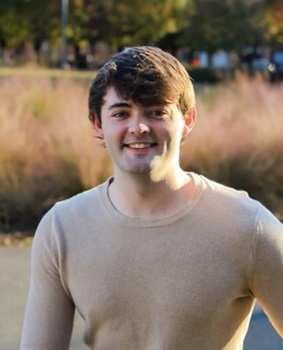 |
Chase Bolding, BS Professional Research Assistant
|
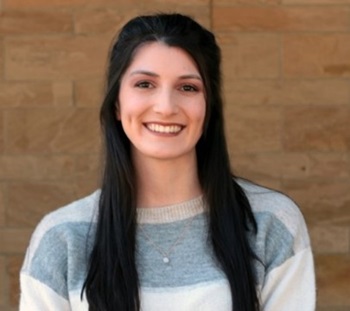 | Mary Turner, BA Professional Research Assistant |
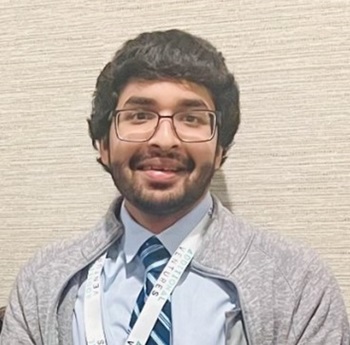 | Praveen Ramaswamy, BS Masters Student – Pharmacology Professional Research Assistant
|
Mailing Address:
University of Colorado – Anschutz Medical Campus
12700 E. 19th Ave
RC2 (P15) – 8104
Aurora, CO 80045
If you’re interested in joining our group, please send all inquiries and requests to: [email protected]